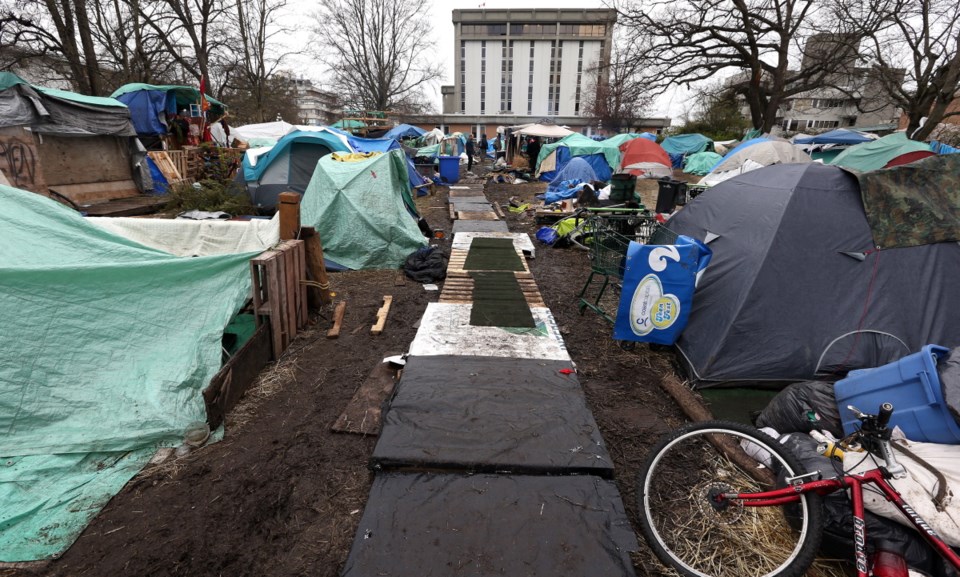There has been no clear breach of the law by campers on the Victoria courthouse lawn, and the community that has emerged there has allowed homeless people to “rest and recover,” lawyer Catherine Boies Parker said in B.C. Supreme Court Monday.
Boies Parker was responding to the province’s application for a court injunction to move the campers, some of whom were in the courtroom gallery. Chief Justice Christopher Hinkson allowed members of the tent-city group to speak occasionally from their seats during the proceedings.
Boies Parker, who has been hired by the Together Against Poverty Society to represent the campers, said no evidence has been provided of an “urgent or compelling need” for the camp to be dismantled.
Besides, she said, homeless people are a vulnerable and marginalized population and have no other place to go.
The tent city provides campers with autonomy in the form of a place to call home and community through contact with a familiar group, Boies Parker said.
The lawyer rejected suggestions that human feces, drug paraphernalia including discarded needles, condoms and rats on the site are creating a health hazard, saying that’s not backed up by evidence.
Boies Parker was part of a legal team that successfully challenged the City of Victoria’s anti-camping bylaw in B.C. Supreme Court in 2008, a decision upheld by the B.C. Court of Appeal in 2009. As a result, a city bylaw permits camping overnight in parks if shelters are full, as long as campers move on by 7 a.m.
The courthouse lawn is provincially owned and not covered by the city bylaw, but the province is proposing to allow overnight camping at the courthouse under the same terms as in city parks.
Outside court on Monday, Rev. Al Tysick, an advocate for the street community, said he agreed with Boies Parker that the sheer number of homeless, combined with the cost of rent and lack of available accommodation, is a big problem when it comes to finding people places to stay.
“Often, some of those [homeless] carry addictions, mental health and health issues, and housing is that much more difficult to get for them,” said Tysick, who works with Victoria’s street community through the non-profit Dandelion Society. “And so we have to build housing for them.”
Tent city has value for the people who live there, he said. “It’s given them some hope.”
In court, Boies Parker read from Tysick’s affidavit, which said: “I continue to bury an average of two members of our inner family per week.”
The number of homeless in the region has been estimated as up to 1,700, but Boies Parker told the court precise homeless counts present a challenge.
“It’s hard to count homeless people,” she said. “It’s a fluid state being homeless, there’s no doubt about it.”
Numbers at the tent city grew through the late fall, with the province posting requests to vacate the area on Jan. 8 and again on Feb. 4. The second notice asked campers to be gone by Feb. 25, but one affidavit put the number of tents there at 97 as of March 1.
The court session is expected to wind up today.



